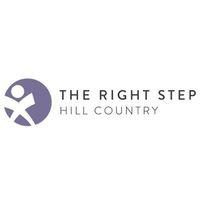Set Free D.A.T. Center
Drug Rehab Center in Houston, Texas
- Substance Abuse
- Opioid Addiction
- Dual Diagnosis
- Drug Addiction
- Alcoholism
Set Free D.A.T. Center in Houston provides evidence-based and personalized treatment for alcohol and drug addiction, dual diagnosis, and substance abuse, along with supportive services and holistic approaches to healing.
About Set Free D.A.T. Center in Texas
Set Free D.A.T. Center, located in Houston, Texas, specializes in providing specialized treatment and support for individuals struggling with alcohol abuse, drug addiction, opioid addiction, dual diagnosis, and substance abuse. The center offers a range of levels of care, from drug rehab, to dual-diagnosis, intensive outpatient, and outpatient care.
At Set Free D.A.T. Center, experienced therapists use evidence-based methods and treatments, including family therapy, group therapy, and trauma therapy, to help clients address and heal from their addiction. The center also provides other supportive services, such as one-on-one therapy, lifestyle coaching, and relapse prevention programs. Clients are provided with personalized treatment plans tailored to their unique needs and goals, as well as holistic approaches to healing, such as yoga and alternative healing. All of this combined helps to provide quality and comprehensive care, so individuals can reach their treatment goals and reclaim their lives.
Genders
Ages
Modality
Additional
Conditions and Issues Treated
It’s not easy getting sober on one’s own, or even going to rehab and escaping the grasp of addiction by oneself. Substance abuse treatment gives addicts a place to stay sober while learning what it takes to quit for good. They will learn from others about what works and what doesn’t work with remaining drug-free.
Treatment centers such as Set Free D.A.T. Center focus on the needs of individual addicts to heal them. There is a combination of physical and mental therapies that treat the root cause of the addiction, whether it be family problems, stress, or past traumatic events.
The final benefit of substance abuse treatment is introducing new people who can help in your recovery after you leave Set Free D.A.T. Center. Through group therapy sessions with other addicts and attending support meetings once a day, a person will learn how to interact with others and cope with cravings. This is a chance for you to rebuild your social circle healthily after you leave treatment.
Opioid addiction starts when a person becomes addicted to legal or illegal opioids. The addiction can happen quickly, in just a matter of days. Opioid withdrawal can be extremely uncomfortable and lead the user to continue to use even if they want to quit. Stopping using an opioid requires medical observation. Sometimes inpatient treatment with a medically supervised detox is necessary for managing the withdrawal process while learning lasting tools for maintaining recovery. Medications may be used in some cases of opioid addiction.
Opioid addiction is one of Texas‘s most prominent forms of addiction. It’s treated by detoxifying the body so that the chemicals from the medications no longer impact them and by therapies to correct behavior and target the root of the problem.
Recovery is not simply about stopping drug use. Recovery is working with addiction while recovering mental health issues that are fueling the addiction in the first place.
Levels of Care Offered
This center offers a variety of custom treatment tailored to individual recovery. Currently available are Drug Rehab, Dual-Diagnosis, Intensive Outpatient, Outpatient, with additional therapies available as listed below.
Addicts who need help with their addiction can enroll in an intensive outpatient program (IOP). But the patient won’t live there during treatment.
IOP involves patients visiting a medical office building regularly for therapy and other services while continuing to live their lives.
IOP is a step up from drug or alcohol detox, but it’s still a phase of recovery, not the end goal. Patients in need of IOP have many options for rehab and treatment.
Outpatient treatment is considered the lower intensity level of addiction treatment. It’s ideal for early phase addiction or lower intensity addictions. It may include weekly sessions instead of daily. It may include weekly sessions instead of daily. Peer group support, 12-step programs, and individual counseling may still be involved but at a lesser frequency than an intensive outpatient program. It is a good choice for someone who doesn’t need to go through a medically supervised detox and who has a supportive home environment. It requires motivation and dedication to commit to the program without constant monitoring.
Therapies & Programs
Family therapy is a group problem-solving that aims to improve communication and relationships between the addict, their family, and sometimes friends. The main goal of family therapy for drug addiction is to create an environment where communication can occur without judgment, hostility, or blame. The therapist is with the family as they learn to communicate differently, especially with the addict when s/he is using. The family can learn to reduce their enabling behavior or rally together and support each other during tough times.
An addict’s family can play a vital part in helping them to avoid relapse because they can spot the warning signs and help them get back on track before it becomes too much of a problem. Family therapy is one of the most effective ways to help addicts stay on the path to long-term sobriety. When a drug addict decides that they want to try and get sober, it takes the support of every person they love to succeed. It can be incredibly difficult for loved ones to watch an addict go through the pain and suffering of withdrawal, but by being there with them and supporting them, they can help to make sure that the addiction never returns.
Groups typically involve meetings with other recovering addicts who can relate to one another’s experiences. They might meet in person or online and typically focus on the process of staying sober rather than overcoming a specific addiction.
In these groups managed by Set Free D.A.T. Center, addicts can build a sense of community and develop strong emotional connections with others who understand what they are going through. These beneficial relationships can help addicts overcome their cravings and prevent relapse at any point during the recovery process.
In general, trauma therapy is a clinical process that helps individuals deal with mental stress often caused by traumatic events. The therapist helps the person identify, understand, and work through the problem. This is done with the help of talking about it in group or one-on-one counseling sessions. Therapists use relaxation, role-playing, art, and music to help the person open up about what is bothering them.
There are many different types of trauma therapists, such as psychiatric nurses and counselors. Not everyone is a good candidate for this type of therapy; it is generally reserved for people who have recently experienced a traumatic event and struggle to get over it. It is often done for children, teenage victims of sexual assault, and war veterans.
Payment Options Accepted
For specific insurance or payment methods please contact us.
Additional Details
Specifics, location, and helpful extra information.
Houston, Texas 77004 Phone Number(713) 520-8042 Meta DetailsUpdated November 25, 2023
Staff Verified
What else do people call Set Free D.A.T. Center?
People have occasionally also searched for “Set Free DAT Center in Texas”
Set Free D.A.T. Center Patient Reviews
There are no reviews yet. Be the first one to write one.
Houston, Texas Addiction Information
Texas is one of the primary hubs for drug smuggling into the country. The border between Texas and Mexico is more than 1,000 miles long. More than 10 million residents use alcohol every year and more than 25% of those are minors. Alcohol and drug use has become so common in Texas that almost 15% of all deaths can be attributed to these substances.
Houston, TX, has a significant drug addiction problem. According to recent statistics, about 8.7% of Houston residents report using an illicit drug. Additionally, there were 849 reported overdose deaths in 2016, many of which were related to opioids. Drug addiction and abuse have a big impact on the community in Houston, Texas, as it creates crime and violence, increases health problems, and puts a strain on social services.
Treatment in Nearby Cities
- Kerrville, TX (226.7 mi.)
- Seguin, TX (156.0 mi.)
- Kaufman, TX (204.7 mi.)
- Joshua, TX (222.8 mi.)
- Athens, TX (172.9 mi.)
Centers near Set Free D.A.T. Center




The facility name, logo and brand are the property and registered trademarks of Set Free D.A.T. Center, and are being used for identification and informational purposes only. Use of these names, logos and brands shall not imply endorsement. RehabNow.org is not affiliated with or sponsored by Set Free D.A.T. Center.



